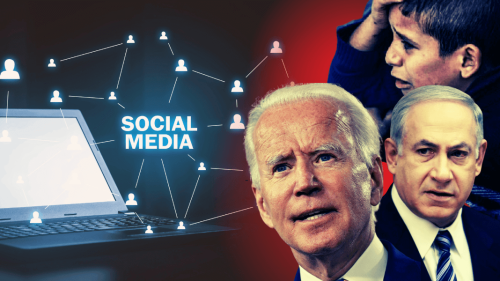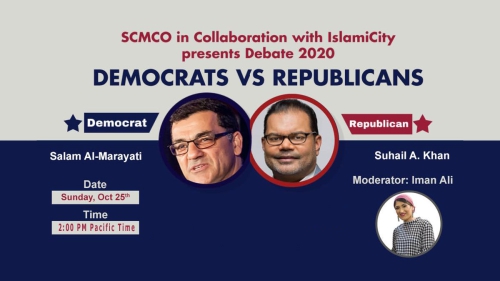Pauperizing the Periphery: Two Decades of Neoliberal Policies
 |
Contrary to the grandiose claims made by the ideologues, the neoliberal, open-door economic regimes imposed on the Periphery by Core capital - starting in the 1980s - have produced no economic miracles. Instead, the neoliberal policies have brought economic ruin or, at best, lack-luster performance to the countries they have touched most deeply.
Starting with the October Revolution of 1917, sections of the Periphery began to break away from, or attenuate their linkages to, global capitalism. After Second World War, this decentralizing movement embraced nearly all of Asia, Africa, and the Caribbean, who now joined Latin America to form the Third World. Several of these countries chose communism and severed their links to global capital. Others used their newfound sovereignty to re-structure their relations with global capital, using the power of government to develop indigenous capital. This was the Periphery's window of opportunity: its golden hour.
However, this window began to close, starting in the 1980s. For a variety of reasons, which included geopolitical luck as well as the still-strong expansive power of capitalism, Core capital staged a comeback both in the Core countries and in the Periphery. Taking advantage of the debt crisis, the World Bank and the IMF began to dismantle the developmental states in the Periphery. In 1994, shortly after the collapse of Soviet Union, Core capital created the World Trade Organization in order to deepen and police the neoliberal, open-door regimes it had imposed on the Periphery. After a hiatus of some three decades, power was once again centralized in the Core states.
The orthodox economists argued, as they had since Adam Smith, that these neoliberal regimes created the best bargains for all parties concerned. Free markets and open economies, so they argued, would direct production to countries where their unit costs were lowest; and if capital were mobile, it would flow copiously from the capital-rich to capital-poor countries. Indonesia, with cheap labor, would produce shoes; and United States, abundantly endowed with capital and skills, would design, finance, advertise and market them. In the neoliberal paradigm, the capital and skills of Core countries would fertilize labor from the Periphery. This was a marriage made in heaven: it would produce prosperity for everyone, and especially for the poor countries.
There was one problem with this marriage. It had been forced on the Periphery once before for nearly a century and a half, and it had only led to abuse and rape of their economies. Of course, the orthodox economists never saw any of this; they could only see their side of the ledger, which always showed profits. They could not see the abuse and rape because they lived in a world of toy economies with no economies of scale, no externalities, no monopoly power, no advertising, no racism, and no asymmetries of power. That is scarcely surprising: every system that produces abuse also produces its apologists. Always, it is the victims - if only because they are the victims - who must identify and analyze the abuse that penetrates their lives.
In order to identify the failure of neoliberal economics, we will compare the growth record of the Periphery in the two decades before and after 1980. First, consider the two decades preceding 1980 when nearly all countries in the Periphery protected their manufactures, regulated their currency markets, engaged in deficit spending, and their governments took on entrepreneurial roles. By the norms of neoliberal economics, they violated all the rules of good economic housekeeping. Yet, they recorded quite impressive growth rates under these interventionist regimes. The GDP of low-income countries grew at average annual rates of 4.6 and 4.5 percent during the 1960s and 1970s; the corresponding figures for the middle-income countries were 6.0 and 5.6 percent. There were no strong regional variations in the growth record for this period. Although growth in Sub-Saharan Africa faltered during the 1970s, there were nine countries in this region whose average annual growth rates exceeded 5.0 percent during this decade.[1]
Over the next two decades, as the World Bank and IMF forced neoliberal policies upon them, the growth rates in the Periphery declined in proportion to their embrace of these policies. The neoliberal policies took their first toll in Latin America and Sub-Saharan Africa. Both regions suffered a precipitous decline in their GDP growth rates to 1.7 percent during the 1980s, producing declining per capita incomes. The growth rates in Latin America recovered during the 1990s to 3.4 percent per annum, though this was significantly below their pre-1980 levels. The growth rate for Sub-Saharan Africa improved only marginally during the 1990s, and it was unable to stem the decline in its per capita income.[2]
The collapse of Eastern Europe and Central Asia came next, with their rapid integration into global capitalism starting in the 1990s. Their economic decline was striking. Although the growth performance of these economies had been weakening for some time, they still managed to log an annual growth rate of 2.4 percent in their GDP during the 1980s. However, their precipitate transition to markets produced catastrophic results. During the 1990s, their GDP declined at an annual rate of 2.7 percent, more than wiping out the gains of the previous decade. It is doubtful if any economic region of comparable size has experienced a similar decline in its output. Soon, their fertility rates fell significantly below replacement levels, producing a declining population.[3]
The economic decline of the Middle East and North Africa since the 1980s has been nearly as steep as in Sub-Saharan Africa. Their GDP growth rates in the two decades after 1980 were significantly below those for the two preceding decades. As a result, the region's per capita income declined between 1980 and 2000. [4] This was not due to declining oil prices alone. The non-oil economies in this region shared in this decline; their GDP had grown at 2.9 percent annually between 1950 and 1980, but this declined to 1.5 percent in the two decades after 1980. This decline occurred at a time when the non-oil economies, barring Syria, were liberalizing their trade and payments regimes.[5]
Most countries in East and South Asia, which had made striking progress in the transition to neoliberal economic regimes, followed the same pattern. Their growth rates in the two decades after 1980 were visibly lower than in the two preceding decades. Notably, this group includes the most advanced countries in the region - Taiwan, South Korea, Singapore, Hong Kong, Thailand and Malaysia - as well as the poorer countries: Sri Lanka, Indonesia, Philippines and Pakistan.
There were few countries in the Periphery that escaped the declining trend in growth rates in the post-1980 period. India and China, the two largest countries in the Periphery with more than one-third of the world's population, nearly doubled their GDP growth rates in this period compared to their record in the three previous decades. Although both countries enacted market reforms since 1980, they were still amongst the most illiberal economic regimes in the world, whether one examines the extent of state ownership in their industries or their trade and payments regime.[6] A second group of countries - Myanmar, Laos and Vietnam - experienced dramatic upturns in their growth rates during the 1990s, without the benefit of a liberal regime.
 |
These results should surprise no one but the historically myopic. In the hundred years before 1950, the colonies and open-door countries performed poorly compared to the sovereign countries in the Periphery - those that were generally free to choose interventionist policies.[7] During the post-war interlude lasting into the 1970s, when most of the former colonies and open-door countries practiced strongly interventionist policies, they experienced a dramatic acceleration in their growth rates. It is scarcely surprising that the forced return to open-door policies in the Periphery, since the 1980s, has repeated the results from the past. It is not clear how long India and China, the two major countries that have not yet surrendered their economic sovereignty, can resist conversion to neoliberal economic regimes.
The re-centralization of power by Core capital that began in the 1980s was quite swift and mostly non-violent, unlike the centralization that reached its peak in the last decades of the nineteenth century. Perhaps, this is not surprising. The first centralization was a pioneering movement: it involved the creation, extension and deepening of core-controlled systems of transport, trade, finance, investment, cultural instruments, and subordinate classes in the Periphery. It took centuries to establish this system, often involving wars. However, when the colonial powers departed from their colonies, in most cases, they did not fully liquidate these long-established systems of control. While they terminated direct political controls, and ended their military presence, many of the economic and social linkages, though weakened, persisted in most former colonies; only the communist countries severed nearly all their linkages with Core countries. This is what made the second re-centralization easier.
The Core countries began to reinforce their informal systems of control as soon as they lowered their flags over their former colonies. The reinforcements took many forms, including foreign aid, military assistance, joint military exercises, training programs, and foreign investments. When Core countries, now working in unison, articulated their new determination - through IMF, World Bank and the OECD - to impose neoliberal regimes on the former colonies in the 1980s, there was little resistance. For the most part, the elites in the Periphery had already been integrated into the hierarchy of power emanating from the Core; they also understood that resistance carried unacceptable costs. There was no popular resistance because re-centralization did not affect the visible symbols of sovereignty. The communist countries too were re-integrated without firing a shot. They were overthrown from within, since they failed to deliver prosperity, freedom or a sense of ownership.
The swift and easy re-centralization of the global economy created a paradoxical situation. United States still commanded a massive military force while its main adversary had melted away.[8] Soon, there were calls to downsize the military, an intolerable prospect for the industries whose profits depend on military contracts. This had to be remedied.
The refurbished power of Core capital was creating some domestic problems too. On the one hand, Core capital began eroding the social gains made by workers, consumers, and environmentalists since the 1930s. More importantly, the labor force in the Core countries was beginning to face competition from sections of the Periphery as they developed manufacturing capabilities. They began losing jobs as Core capital relocated to the Periphery; a process accelerated by the internet revolution. In addition, Core capital was also using its newfound muscle to import workers into their domestic markets. Faced with a sustained decline in their living standards - the first in the history of industrial capitalism - a growing number of workers in the Core countries were gravitating towards anti-Corporation, anti-globalization movements. This too had to be remedied.
United States would solve these problems by inventing new enemies. It was in this context that Bernard Lewis, in 1990, advanced his thesis of the "clash of civilizations" between the West and Islam. He argued that the Islamist opposition in the Middle East represented "a mood and a movement far transcending the level of issues and policies and the governments that pursue them. This is no less than a clash of civilizations - the perhaps irrational but surely historic reaction of an ancient rival against our Judeo-Christian heritage, our secular present, and the worldwide expansion of both in 1990, that the West was engaged in a veritable clash of civilization with Islam." Three years later, Samuel Huntington generalized this thesis into a historical principle. At the end of the Cold War, he prophesied, the world is entering a new age of civilizational conflicts, primarily involving the West and Islam, and the West and China.
The Clash thesis set up the military machine for capture by powerful special interests and voting blocks within United States. Quickly, the Israeli lobby, Christian fundamentalists, and oil interests in the United States joined forces. Each would pursue its specific goal - eliminate threats to Israel's hegemony, Christianize Islamic societies, and capture oil profits - by mobilizing America's redundant military to re-colonize the Middle East. It was not hard selling this imperialist project to Americans. It would not be difficult painting the Arab regimes into a corner. They were tyrannies, they possessed weapons of mass destruction, they were an imminent threat to American lives, they opposed Western values, and they threatened Israel. A great nation - the "greatest" there has ever been in the history of mankind - would have little difficulty manufacturing a clash of civilizations when it needed one.
M. Shahid Alam is professor of economics at Northeastern University. His last book, Poverty from the Wealth of Nations was published by Palgrave (2000). He may be reached at [email protected]. M. Shahid Alam
References:
-
World Bank, World Development Report, 1983 (New York: Oxford University Press, 1983): 150-51.
-
World Bank, World Development Report, 2000-2001 (New York: Oxford University Press, 2001).: 295.
-
World Bank (2001): 295, 297.
-
World Bank (2001): 295, 297.
-
Sevket Pamuk, The Middle East and North Africa in the age of globalization, 1980-2000 (Paper presented at the 13th IEHA Congress at Buenos Aires, August 2002): http://www.eh.net/XIIICongress/cd/papers/7Pamuk 421. pdf
-
Wacziarg and Welch (2002) maintain that India and China remained closed economies as of 2000 - India more than China - when judged in terms of their average tariffs, non-tariff-barriers, and exchange-rate premiums. In addition, state-ownership remained dominant in heavy industries in India; in China, this included the financial sector as well. Wacziarg, Romain and Karen Horn Welch, "Trade liberalization and growth: New evidence (Palo Alto: Stanford University, November 2002): http://www.stanford. edu/~wacziarg/ down loads/ integration. pdf.
-
The average annual growth rates of PCI in the sovereign countries were 1.00 percent for 1870-1900, 1.61 percent for 1900-1913, and 1.34 percent for 1913-1950. The corresponding figures for the colonies and open-door countries were 0.59, 0.50 and -0.27. Alam, M. Shahid, Poverty from the wealth of nations (Houndmills, UK: Macmillan, 2000): 151.
-
In 1994, according to Conetta and Knight (1997) US military expenditure was $288 billion, while that of Potential Threat States was $167 billion; in 1986 the corresponding figures were $365 billion and $550 billion. Conetta, Carl and Charles Knight, Post-Cold War US military expenditure in the context of world spending trends (Project on Defense Alternatives: January 1997): http://www.comw.org/pda/bmemo10.htm#2.
Related Suggestions
Think Professor Alam is a big boy and can take care of himself. If he can't there are laws to protect his right of free speech, and the only thing he needs to be concerned about is the court of public opinion.
It is one thing to publish one's theories in a free press or public forum such as the professor does. It is quite another to call people names; there is a differece. One's legal under the law and the other isn't.
Marlene said:
"He (the author) completely ignores the facts that some in the arab world are a threat to American lives (as documented by decades of attacks),..."
The USA has invaded and occupied 2 Muslim countries in 2 years, and continue to do so! I can document something for you, it's called violating International Law and threatening the lves of non-American and Muslim lives for 80+ years, currently deporting them, revoking their citizenships, burning Masjids on fire, illegally imprisoning 600+ people at Guantanamo Bay for like 2 years in dispecable conditions; murdering thousands of Afghani citizens, murderng thousands of Iraqi citizens, creating Tribal warfare to spread due to the lack of rule of law! While you are fed 10 percent of the attacks in the world, the other 90 percent work through American foreign policy, where have you been for the last 80 years of divide and conquer of Muslim lands and people?
Marlene said:
"anti-west, are tyrannies, do possess WMD as stated by all countries belonging to the UN for years and years."
Let me give you a little dose of reality here, the USA has the largest arsenal of WMD in the world today, Israel is #2! CONTAINERS in which deadly viruses and Anthrax found at a military base in the USA buried below some Earth a few decades ago! How about Israel's use of chemical weapons on Palestinians in Apr.2001, in violation of 68 UN Resolutions!
If the United States government feels that they do not need the UN Inspectors to continue the search for WMD, and the US Military can do it themselves, then who, is going to search for the WMD in the USA??? Good job King...keep challenging as these sorts of facts cannot be ignored and hidden behind a bag of lies that US Media feeds to Americans. Marlene, I'm sure you like the ruling just recently by the FCC on Media Ownership btw. As-Salaam-U
Infact you're the one who attacked the author because of his thesis, and you expressed outrage that being a resident in the US how he could he think otherwise. Basically the author should toe the line and be a good little pacified brown guy. Does this apply to Vidal, Chomsky, Zinn and others who born and raised in the US also ? Last time I checked these intellectuals werent that different from Professor Alam in his views.
As for social skills, I do have a habit of being blunt, it makes for clear cut discussion. You might want to develop yours before posting nonsense peppered with condescending conjecture. Welcome to the real no-spin zone.
I guess you also believed that the former mayor of Baghdad had WMD which could reach the US in less than 45 minutes. Amazing what a combo stupidity, ignorance and hatred make for these days when an article written by a respected academic is rejected by fascist dullards simpley because it speaks truth.
He completely ignores the facts that some in the arab world are a threat to American lives (as documented by decades of attacks), anti-west, are tyrannies, do possess WMD as stated by all countries belonging to the UN for years and years, etc instead of telling the truth that there is more than enough blame from all sides to go around. To then offer a fantasy conspiracy from the oil lobby etc. is reckless and inexcusable. Typical double speak with no solutions which is part of the problem.
The truth is just too much for Judeo-Christo fascists to handle. Talk about paranoia indeed.
The author thus tries to make believable the fancy of a Jew hegemonic conspiracy against the Arab regimes. He wants to lead nave and uninformed readers to think that a mad power originated in Israel has taken over the command of the U.S., with the aid of "Christian fundamentalists" and "oil interests in the United States" and now is working his way to impose his law to the world.
M. Alam sure knows what he is doing: encourage agitation and hatred. So why is he doing it? Which are his answers to the situation, which are his solutions? Why doesn't he expose them, rather? As a professor, he is in a very good position to do so, isn't he? Why is he losing his time and ours like that? Why?

















